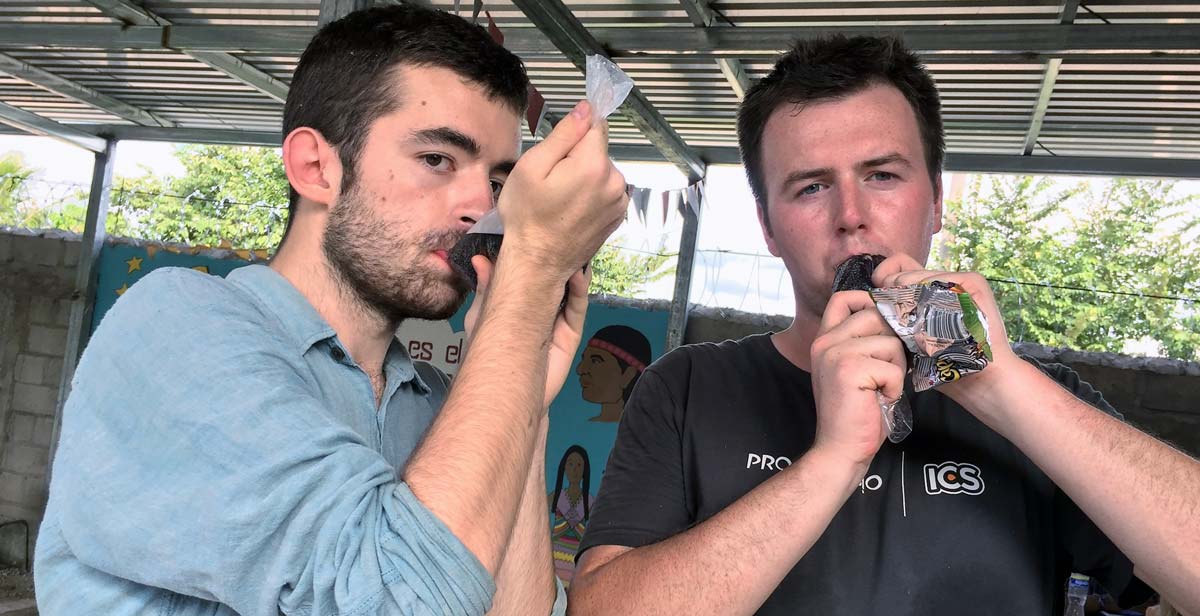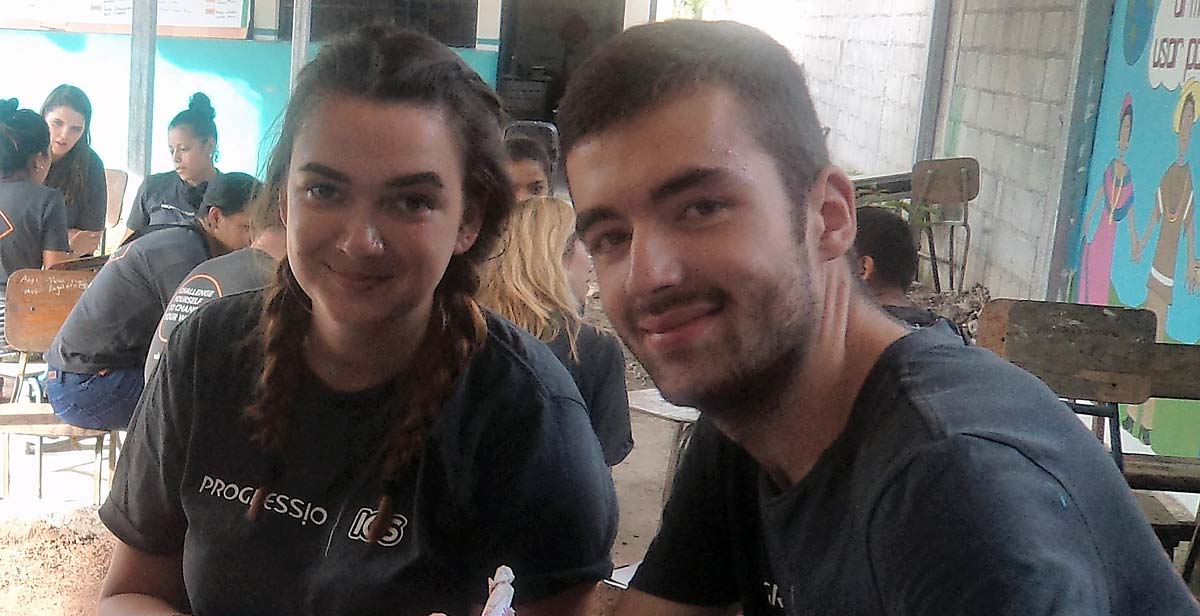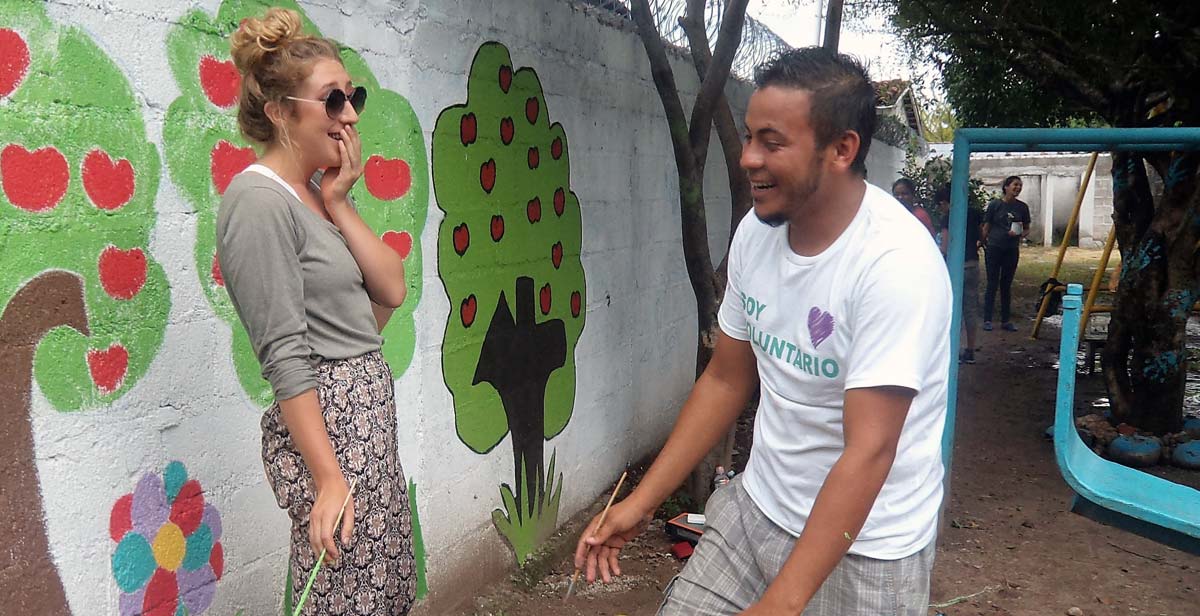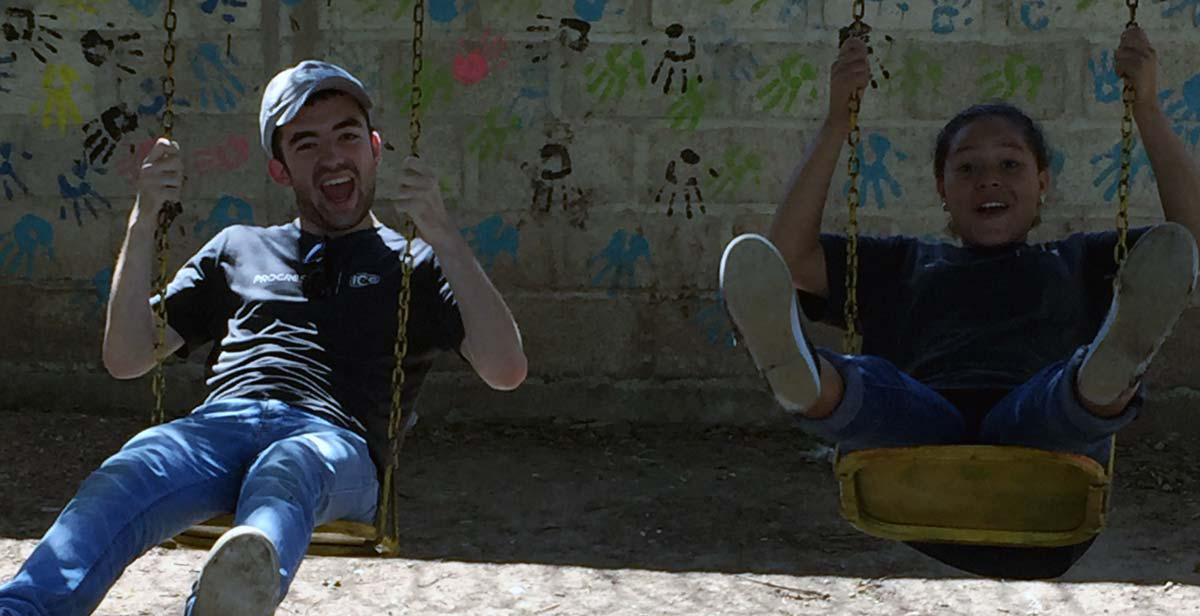It’s been two weeks in Honduras now and I’d say the majority of us are over the teething stages of learning Spanish. Obviously, we still make mistakes and sound like absolute fools every day, and will do until the day we leave but I feel like the mistakes we make are as stupid as they were in the first couple of days. Here is a compilation of all the ridiculous mistakes we have made so you don’t make the same ones.
“Estoy frio”
One of the first things to go wrong was that some of the girls were trying to say they were cold (because believe it or not, it can get quite chilly at night at high altitudes). They ended up saying they were cold people, as in stone cold killers.
In Spanish, instead of saying I am cold as in English, you say I have cold and hence use the verb tener (to have) instead of the usual estar (to be). This weird use of tener is also the case for being hot (tengo calor), being hungry (tengo hambre), age (tengo 18 años) and sleepiness (tengo sueño) amongst others.
“Tengo hombre”
Correcting their previous mistake, the girls began to use tengo when talking about being hungry. However, mispronunciations led to them saying men (hombre) instead of hunger (hambre). As you can imagine, the girls were met with much confusion when walking around rubbing their tummies saying “I have men”.

“Bailar la punta”
This one’s from me. In Honduras there is a type of fast paced, full of hip movement dance called La Punta. Dropping the n is not advised as it means something very rude. In my excitement at the bonfire, shouting this out across the fire was not my best move. Despite this, my enthusiasm for learning more of the bombastic (I need a word here that means mad hip music and passion but I am not convinced a word exists in English) dances of Honduras has not been dampened.
*Dan stealing Adid´s bed*
First time interacting with out Honduran counterparts, Dan instantly stole a bed. Much pointing and “Aqui!” later it was sorted but it was a struggle after a 35-hour journey. Key phrases useful here would be “Yo aquí” (Me here) and “Tú aquí” (You here).
“Cuantos pollos”
On meeting the host family for the first time, Dan tried to ask how many chickens there were. However, pronunciation is important. In Spanish two l´s make a y sound i.e. pollos is poyos. Dan did not do this and whilst we are not entirely sure what he said, the reaction from the host family was not one as if he asked how many chickens.

*Conjugation slip ups*
Remembering conjugations is hard, especially as most of the commonly used verbs in Spanish are irregular. It’s difficult but try and slow it down and use the right one if you can, no matter how urgent or excited you are. For example, it was my host brother’s birthday and he was washing the dishes. I excitedly/quickly wanted to say “Go watch TV, it’s your birthday” but ended up trying to wrestle a plate off him whilst laughing and shouting “I watch TV”.
Also be prepared for your accent to be laughed at. Get to know the word divertido, funny, as your accent will be called it.
*The double r conundrum*
Rolling your r’s is a big thing in Spanish in words with two R’s (carro, perro, desarrollo). Do not stress if you cannot do it. It makes a great conversation piece/ice breaker if you struggle to hold a conversation in Spanish. Just try and say a word with rolled R’s. It’s a great multilingual joke that everyone can be a part of, (because you will undoubtedly look ridiculous trying to get your mouth to produce those r´s).

*As a side note*
Also just try to be careful with physical stuff when carrying out community work. Playing with a ball in an orphanage can easily lead to a burst pipe if your aim is off. As luck would have it, this happened almost exactly when our bus home arrived. The driver was ready to leave and obviously it wouldn’t be morally correct to run away from an orphanage after destroying their source of running water. Whilst most people were panicking, Hector, a national volunteer, casually went to the shed in silence, brought out a saw and managed to fix it, all whilst we all still hadn’t done much other than panicking. Also sneaking up on someone can easily lead to a dropped paint can. Please note that both these events occurred by Taylor.
Regardless, no matter how much Spanish you learn in preparation, you will make mistakes. There is no easy way to overcome this. Pronunciation, accents and cultural/colloquial phrases all impact on how you understand and are understood. Before coming on ICS, the prospect of trying to communicate with a team and host family solely in Spanish terrified me a little bit, but just a couple of weeks in, I’ve realised I don’t have to worry about it. The national volunteers are so patient with us and are keen to help us learn Spanish and in return learn English. It’s important to be understanding when mistakes are being made as it is a sign they’re learning. Communication isn’t just about the words you use; the important thing is to try, if you make mistakes you can learn from them. Although I’m hoping you’ll make less mistakes now.
Written by ICS volunteer Harry Tomkins



